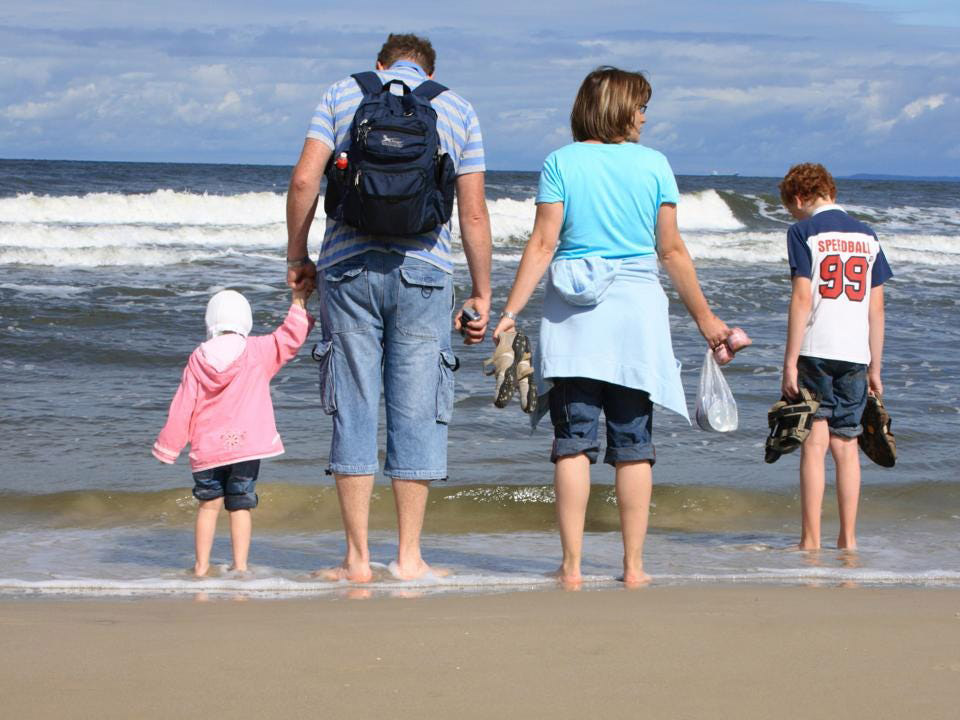
As the lazy summer nights give way to strictures of back-to-school bedtimes and back-to-work deadlines, I’m reminded of the last hurrah to summer in my youth. I grew up in a small town where Labor Day weekend festivities meant children’s races at the local swimming pool.
One year, I took my mark at the edge of the pool with the other racers, squared my shoulders with determination, dove in and swam the best darn breaststroke I could muster. Problem was, the race category was Freestyle.
My 9-year-old brain interpreted “freestyle” as the freedom to do as I pleased, and well, I liked the breaststroke. Everyone else swam the crawl.
I admit I came in last. But I felt glorious.
So who won and who lost? That depends entirely on what you’re measuring. I lost by the most conventional criteria, but those are not the only ones that matter — not for 9-year-old swimmers and not for senior executives.
“Freestyle” — within certain parameters — can be a winning strategy for leaders, and for life in general. It’s not about calling work outcomes “successful” if you come in last. It’s about evolving what it means to win, and what it takes to get there.
Companies, grappling with the fallout from the upheaval of COVID-19, the Great Resignation, and most recently “quiet quitting,” have recognized that the paradigm has changed. Whether it’s four-day work weeks, flexible hours, remote work or no emails on weekends, nearly everyone is rethinking what it means to “go to work.” We will continue to see policies come and go as employers experiment to reflect our times.
Ultimately, though, it’s ourselves we need to reform.
Will We Put Life First and Work Second?
This weekend as the summer inches to a close, our minds will make the transition from unstructured days to back-to-back meetings. We’ll turn off the OOO message and mark ourselves as “available” again. Freedom and fun will give way to restrictions and responsibility.
![Amusement park attendees ride a swing at Adventureland in Farmingdale, New York (Photo by Alejandra ... [+]](https://www.ericaarielfox.com/wp-content/uploads/2022/08/Work-Life-Balance-Didnt-Work-2.jpg)
Amusement park attendees ride a swing at Adventureland in Farmingdale, New York (Photo by Alejandra Villa Loraca/Newsday RM via Getty Images
NEWSDAY VIA GETTY IMAGES
Right now, it’s in our hands to declare this mindset and its attendant behaviors as belonging to the old world order and not to the new one we’re creating. This so-called “work-life balance” can belong to the past.
We are in a “Life-Work Revolution,” in which the balanced life takes precedence over the exhausted, stressed-out, excessively scheduled one.
Nearly a year ago I wrote:
“The old work-life balance was a lie because there wasn’t room in it for life. All was work. The new equation – life-work balance – is true. We’re living it. We can have both as long as we put our lives first and our work second.
“This is the life-work revolution of our time.”
In the next few weeks, we should affirm our individual commitment to the Life-Work Revolution. We can decide right now that we are rewriting our own rules, changing our own expectations, flipping the old equation on its head.
Certainly, results and work relationships matter. Responsibilities are real. Swimming the breaststroke in the Olympic freestyle race will not win you the gold.
What we can do is question whether some of the rules we accepted as “just the way it is” can become “just the way it was.” Must we win in leadership only through conventional means? Must we stick to the old rules to run the race? No. This is our chance to write new rules, set new expectations, and live our lives differently.
How Can We Make Life-Work Balance Our New Reality?
Rewriting the rules that govern the relationship between our lives and our work is the first step. At the end of the day, it’s a personal decision by each of us whether we’re ready to make the change. A company policy of “no weekend emails” is irrelevant if we persist in checking our phones at Sunday brunch.
It will require lots of us to make this commitment for the new way of life to stick. Wresting balance back from overly burdened lives can only become normal when lots of us do it at the same time. We need one another to make this a cultural revolution.
Then we can all get home for dinner, take the day off when an old friend is in town, play sports on the weekends, and still get promoted for excellence in performance when we excel at our jobs.
The funny thing is that when you’re happy and rested in your life, then you are more productive and successful at work, not less. You can come in first and suffer less along the way. You don’t need to choose between having fun in the pool and winning the race.